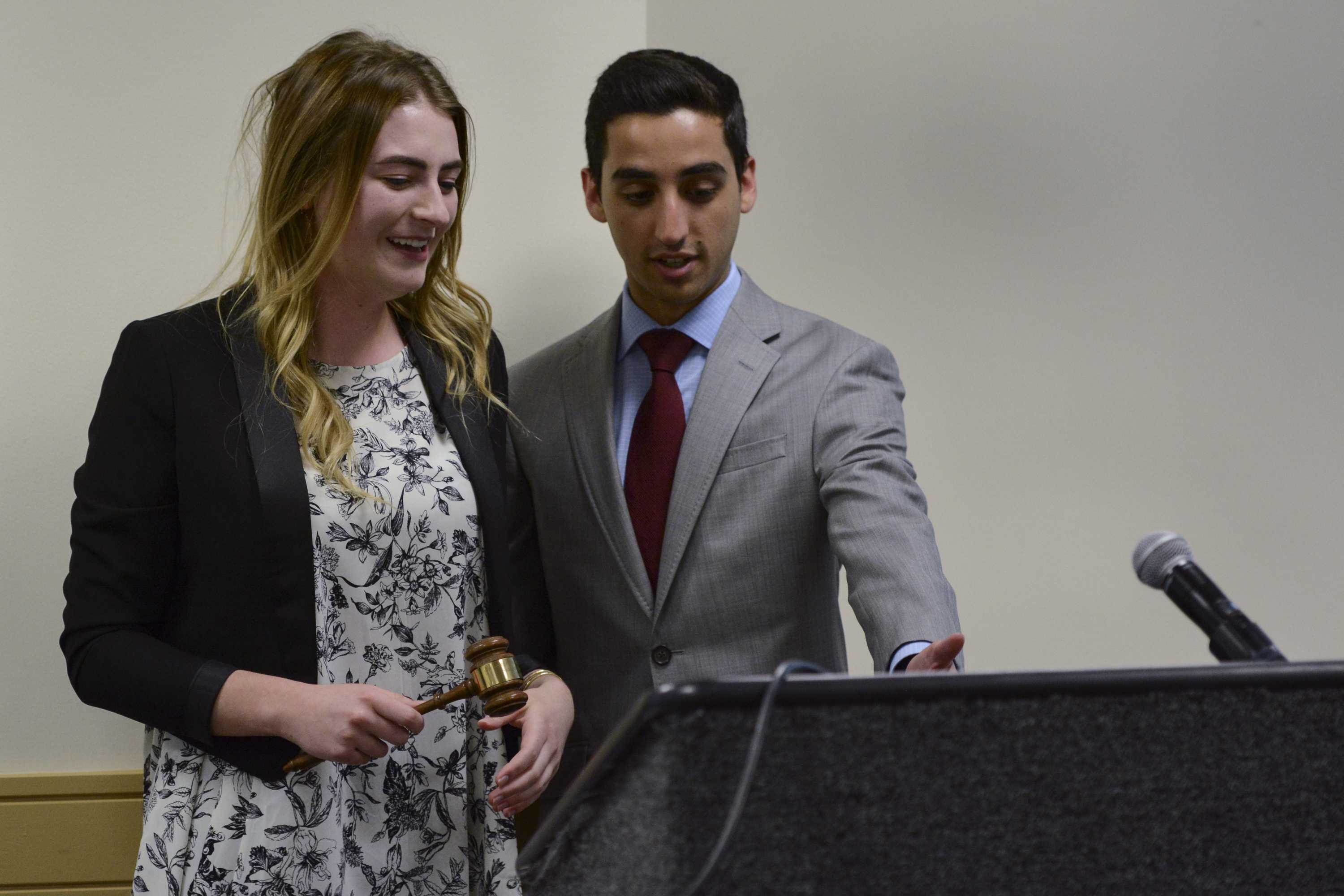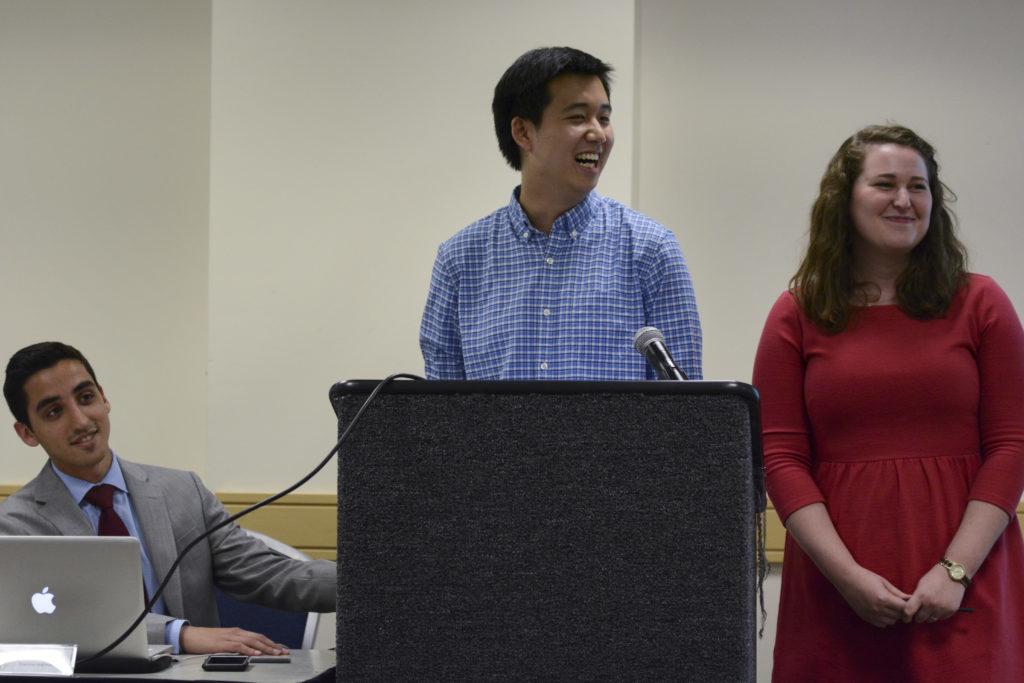Peak Sen Chua was officially named the president-elect of the Student Association Wednesday night, putting him in line to become the first SA president in recent years not to be elected by the student body.
SA President Erika Feinman signed a measure, passed by the senate Monday, that promotes the executive vice president-elect to president-elect when there is a vacancy in that position.
Sydney Nelson, Chua’s former opponent in the executive vice presidential race, was unanimously confirmed by the newly elected senate to be Chua’s executive vice president.
Addressing the senate-elect, Nelson thanked Chua for her nomination and promised to work on behalf of the student body.
“I want to make sure that every voice is heard – that we’re reflecting here in the Senate what the student body wants to see,” Nelson said. “My role as EVP isn’t to tell you what you should focus on or what issues you need to tackle but empower you to serve your constituents because you were elected for a reason.”
The decisions bring an end to weeks of uncertainty over who would lead the SA next year after the presidential election was initially postponed to the fall and later cancelled altogether.
SA leaders said they followed internal rules, which mandate that the executive vice president take over when the presidential post is vacant.
The JEC and the Division of Student Affairs postponed the presidential election to the fall after former presidential candidate Lande Watson was disqualified from the race after an opponent filed harassment and intimidation complaints against her.

Sam Hardgrove | Assistant Photo Editor
Officials said the decision was made for the sake of the students’ wellbeing after a bitter campaign, but under the SA’s constitution, elections could not be held in the fall semester.
Current SA EVP Thomas Falcigno said the postponement decision was outside of the powers of the SA Constitution. He said even though the decision to scrap the fall elections may have been unfair to candidates who were not disqualified, the delayed elections would have been unconstitutional.
The SA Constitution dictates that in the absence of a president, the executive vice president assume the role. Falcigno said Chua would have become president May 2 – immediately after he was sworn in as executive vice president – even if Monday’s bill was not passed.
“I would take following what our constitution says seriously – something that I took an oath to uphold – over treating students fairly in an election,” he said. “My priorities are upholding our governing documents and then worrying about elections.”
He said if a fall election were to be held, the SA would miss out on valuable summer planning time to meet with administrators and begin to work on platform points.
“The summer is a really important time, particularly for the president and EVP, to get the groundwork laid for a lot of the projects that they plan to work on,” he said. “Hopefully having two people in that position over the summer – in this situation – it would give the opportunity to place the Student Association in a position where we can best advocate for the student body.”
Alex Simone, the chair of the JEC, said the committee only approved the decision to postpone the presidential election after student affairs officials told them it would be in the students’ best interest.
Tim Miller, the associate dean of students, declined to comment on the Division of Student Affairs’ decision to postpone the election, pointing to the previous statement about students’ wellbeing. Miller said he supported the SA’s decision to promote Chua.
“The Student Association followed their governing documents,” he said in an email. “We look forward to working with the next group of student leaders.”
But former presidential candidate Adam Johnson, who was not named in the complaints, said the decision was unfair because it prevented the student body from choosing the SA president.
“I couldn’t even get a vote, so that was hard,” Johnson said.
Johnson said he supports Chua’s presidency, but that the election should not have been postponed at all.
“I think it’s unfair for the student body to not be able to vote on their own president,” he said. “Peak was not chosen to be president. He was chosen to be EVP.”





